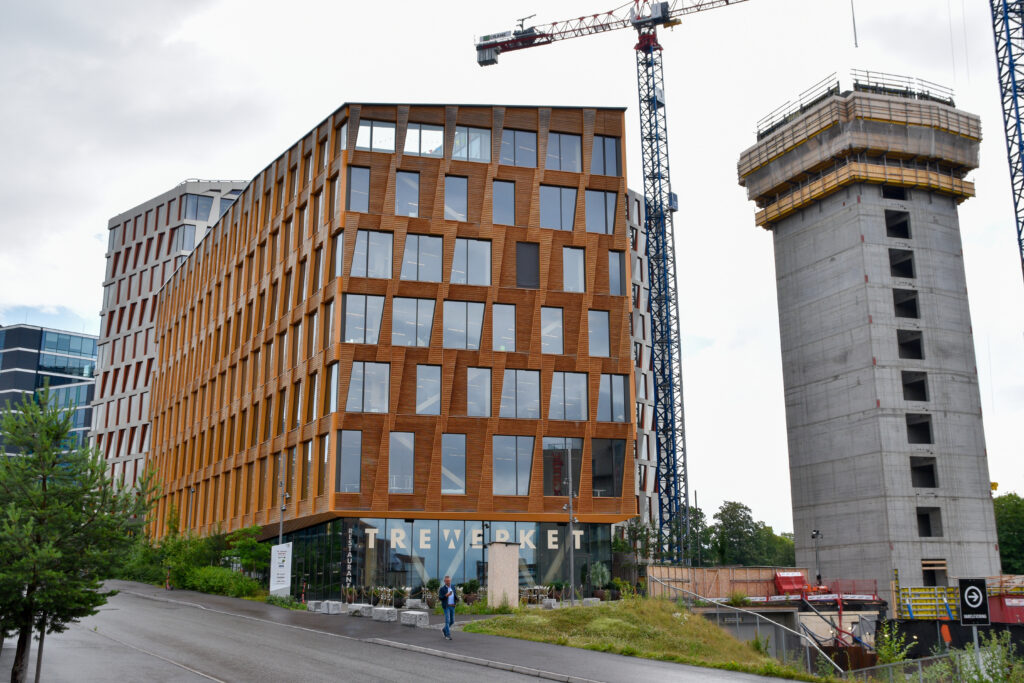Addressing climate change with innovation in the forest-based industry

- Status: Aktiv
- Prosjektnr: 2526530
- Start: 01.10.2021
- Slutt: 30.11.2024
- Finansiering: Norges forskningsråd
Prosjektbeskrivelse
Norway’s national strategy for the forestry and wood-based industry has defined several goals related to an increased use of wood in the construction industry. Wood is a renewable material and has a considerably lower carbon footprint compared to steel and concrete. In order to reduce the environmental impact of the construction industry, it is necessary to make wood a more natural choice in constructions than it is today. The Inno4Tree project has the overall objective to facilitate a sustainable transition of the construction industry to the circular bioeconomy, by substituting concrete and steel with wooden construction material.
For companies experienced only in concrete and steel, the shift to wood entails risks which may be high without the right competences. The reason why the price of a wood-project is today higher than a similar project in concrete and steel is not only the price of the material, but also a lack of experience.
Several ways exist for the construction industry to come to grips with its multiple needs for competencies on all levels. Vocational training can be provided by intermediate actors, while apprenticeship is a cooperative effort between firms and the national education system. Higher vocational education programmes can be enforced to meet the current and upcoming needs for skills and competence of the forestry sector and the Norwegian circular bioeconomy. Our project draws attention on possible forms of cooperation between the industry and the educational institutions to meet the industrial needs. Our project has a special focus on intermediary organizations such as professional associations, cluster organisations and knowledge brokers, which can be central for upgrading the workforce skills.
The Norwegian bioeconomy strategy also advocates for policies that facilitate cross-industry synergies. The construction industry is particularly complex and requires the coordination of architects, engineers, builders and suppliers. Synergies may be developed more easily when decisions are taken together by different companies. For instance, companies which use actively their steering boards for understanding and get access to new value chains are better prepared for developing innovative strategies. Companies in the wooden construction industry which have connections to the forestry sector in their boards have better access to the best raw material suppliers. We study public data on boards of directors of Norwegian companies, in order to detect connections between firms and suggest new synergies between the construction industry and the forest-based industries.
Deltagere

Riina Toivanen

David Lazarevic

Knut Amund Skatvedt

Stine Lønbrø Bertelsen
Marco Capasso



